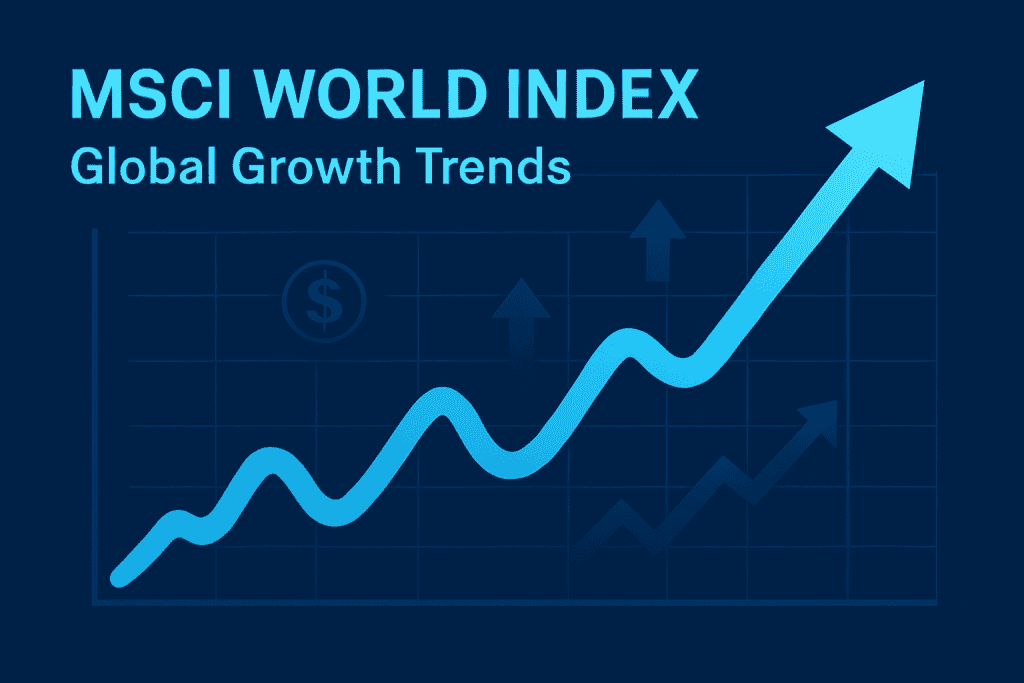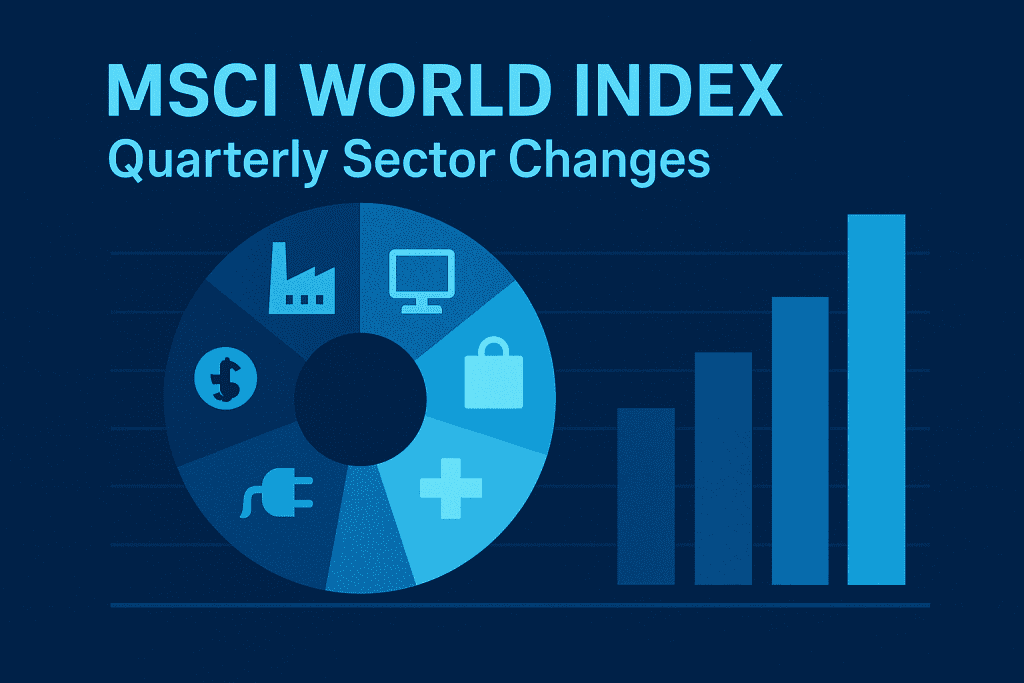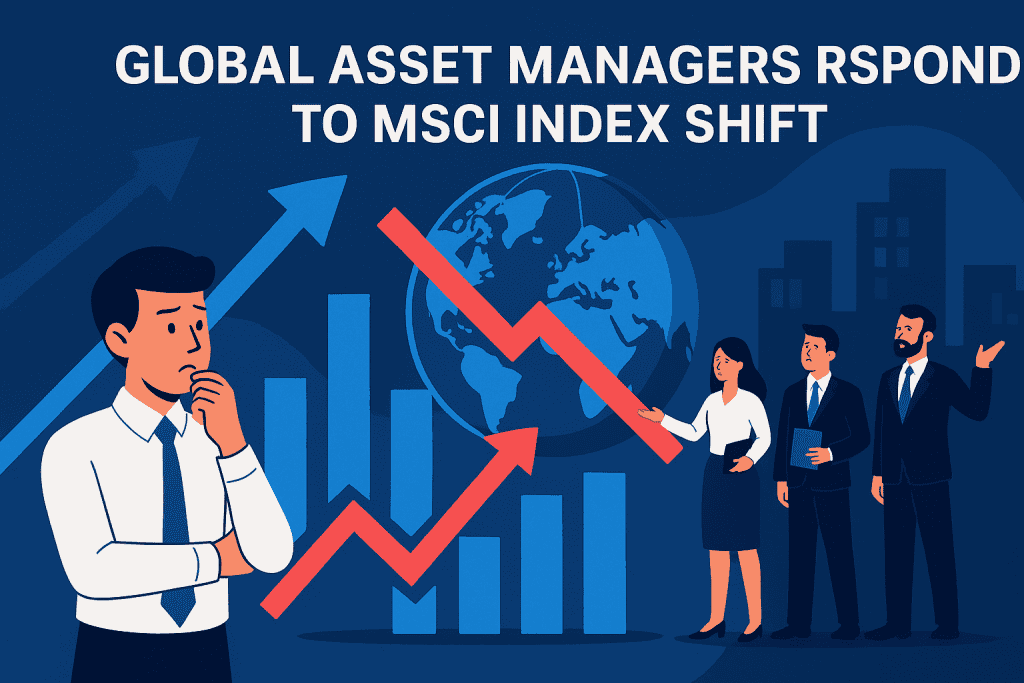
The MSCI World Index is once again capturing attention in the world of global finance. As a comprehensive benchmark covering over 1,500 large and mid-cap stocks from 23 developed countries, it is widely recognized as a mirror of global economic health. Whenever MSCI makes adjustments to this index, it sends a signal that financial professionals cannot afford to ignore.
In recent weeks, the index has undergone several changes that reflect shifting investor sentiment, sector realignments, and a global move toward sustainability and risk diversification. For institutional players and individual investors alike, these adjustments offer valuable insights. They reveal where money is moving, which sectors are falling out of favor, and where opportunities may emerge next.
If you are someone crafting an investment plan, whether you are a passive investor using ETFs or a fund manager overseeing active portfolios, understanding these recent developments is not just useful, it could directly affect your portfolio’s performance in the months ahead.
What Changed in the MSCI Index
The quarterly rebalancing of the MSCI World Index is always a critical event, and the changes implemented this quarter were particularly noteworthy. These changes are based on rigorous analysis of market performance, economic indicators, and corporate data. Here’s what unfolded:
- Sector Shifts: The most significant move was a reduction in exposure to U.S. technology stocks. This decision aligns with concerns from analysts about overvaluations in big tech, especially after strong gains in previous quarters. In contrast, there was an increased weighting toward European healthcare and industrial sectors. These industries are seen as more resilient during uncertain times, particularly as global economies deal with inflation, supply chain issues, and fluctuating interest rates.
- Geographic Diversification: While the U.S. remains a dominant force in the index, the rebalancing demonstrates MSCI’s continued commitment to geographic balance. Europe and Asia-Pacific received relatively larger weightings, recognizing their growing economic significance and potential for stable long-term growth.
- ESG Standards Tightened: One of the most important updates was the refinement of Environmental, Social, and Governance criteria. MSCI is now holding companies to higher sustainability and ethics standards. Companies with poor environmental practices, governance failures, or labor violations are being removed or downgraded. This impacts not only niche ESG funds but also a broad range of mainstream mutual funds and ETFs that track the MSCI World Index.
These combined changes reflect a growing focus on balanced risk, sector stability, and responsible capital allocation.
When and Where Did Changes Occur

The latest updates were implemented globally on April 30, 2025, following MSCI’s regular quarterly index review. These updates occur four times a year and are crucial moments for portfolio managers and financial analysts alike.
- Global Synchronization: Because the MSCI World Index influences trillions in global investments, the timing is synchronized across major financial centers, including New York, London, Tokyo, and Sydney. This helps ensure a fair and orderly market response, reducing the chances of regional imbalances.
- Preparation by Funds: Institutional investors typically begin preparing for these changes weeks in advance. They receive preliminary announcements, assess the likely impact, and start adjusting their holdings accordingly. As a result, trading volumes and sector movement can often reflect these shifts even before the official implementation date.
Coordinated timing also ensures that ETFs, pension funds, and insurance products remain aligned with MSCI’s evolving global strategy.
Who Influences the MSCI Index
The changes are driven by the MSCI Global Index Policy Committee, a team of experts in macroeconomics, financial analysis, and data science. They review corporate earnings, market indicators, geopolitical developments, and long-term economic trends when making index decisions.
- Institutional Stakeholders: Once changes are confirmed, leading asset managers such as Vanguard, BlackRock, and State Street Global Advisors implement them in the funds they manage. These firms operate some of the largest index-tracking ETFs and mutual funds in the world. For instance, BlackRock’s iShares MSCI World ETF holds billions in global equity. Their portfolio adjustments following MSCI’s update result in significant capital reallocation across sectors and geographies.
- Impact on the Market: When these major firms act, the broader market often follows. Smaller investment firms, hedge funds, and individual investors tend to align with the new index structure. This chain reaction can trigger rallies in newly favored sectors and downturns in those being phased out.
Why Do These Changes Matter

The MSCI World Index is one of the most influential benchmarks in global finance. Its composition directly impacts how money is allocated across international markets.
- A Benchmark for Global Capital: Trillions of dollars are tied to this index. Any adjustment in weighting or composition can lead to immediate capital inflows or outflows in the affected countries and industries.
- Shift from Growth to Value: This quarter’s rebalancing shows a clear movement away from high-growth U.S. tech and into value sectors such as industrials and healthcare. It signals that large investors may be looking for more stable returns and are preparing for slower economic growth or increased market volatility.
- The Rise of ESG Standards: The revised ESG criteria mark a continued rise in responsible investing. More funds and private investors are seeking alignment with ethical and sustainable practices. Companies that fail to meet these expectations could see a decline in investor support and long-term performance.
- What Investors Should Do: If you hold ETFs or mutual funds tracking the MSCI World Index, your portfolio is already affected by these changes. This is a good time to review your exposure, assess your diversification, and consider how your investment plan aligns with these global shifts. Whether you are an individual investor or managing a large fund, staying in sync with MSCI trends ensures you are not left behind by major market movements.
Quotes or Statements
This statement from @metakuna is resonating far and wide. It speaks to a growing understanding that limiting investments to one country, even one as dominant as the U.S., carries risks. Diversification across developed markets, which the MSCI World Index provides, is increasingly seen as a smarter, safer strategy for long-term growth.
Conclusion
The latest changes to the MSCI World Index show how important this index is for understanding what is happening in the global economy. By adjusting which sectors and companies are included, MSCI helps investors know where the strongest areas of growth and stability might be. These updates are not just small changes. They affect how major investment firms and everyday investors choose where to place their money. The recent focus on healthcare and industrial companies, along with stronger rules for responsible business practices, suggests a shift toward safer and more sustainable investments.
In the coming months, more updates like this are expected as global markets continue to change. Investors who pay attention to how the MSCI World Index is structured can make better choices about their own investment plans. Whether you are new to investing or have years of experience, keeping track of these changes can help you stay prepared, avoid risks, and find new opportunities across the world. Staying informed is one of the best ways to grow your money wisely.
Resources
- MSCI. MSCI World Index Overview
- MSCI. Developed Markets Indexes
- Investing.com. MSCI World Index Tracker
- Business Insider. Financial Overview and Commentary
- CNBC. Market Data on MSCI World Index
- YouTube. MSCI Index Q2 2025 Video
- Twitter. Tweet on Diversified Investment Strategy
